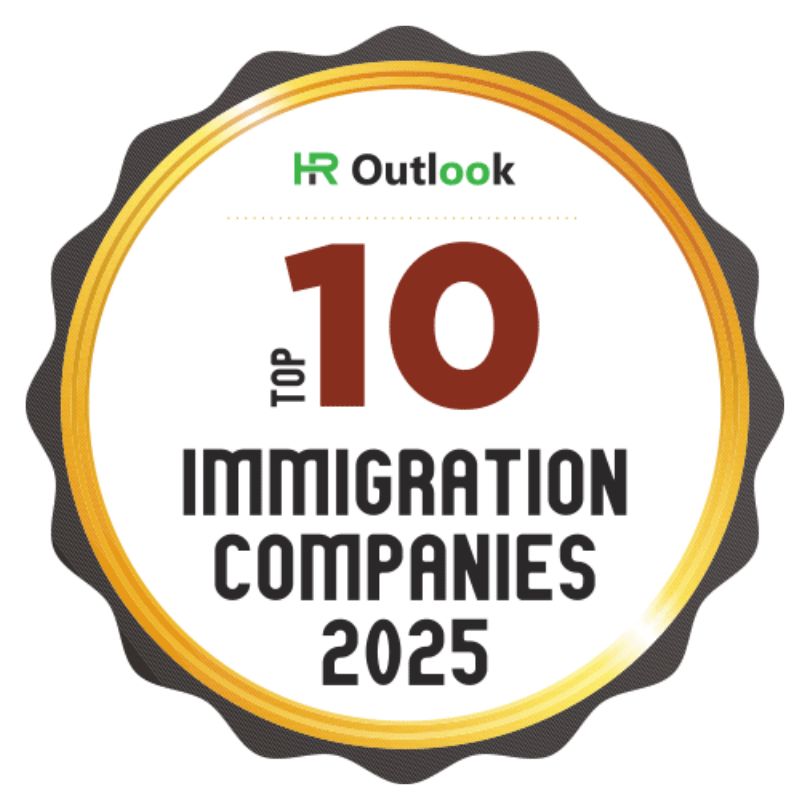- Topics
- Administration Management
- Applicant Tracking Systems
- Change Management
- Compensation Management
- Diversity and Inclusion Management
- Employee Benefits
- Employee Communication
- Employee Engagement
- Employee Expense Management
- Employee Experience Management
- Employee Health Management
- Employee Learning Management
- Employee Monitoring
- Employee Onboarding
- Employee Performance Management
- Employee Satisfaction Management
- Employee Training
- Employee Wellbeing
- Employment Verification
- Financial Wellness
- Hiring
- Hiring and Onboarding
- HR Reporting
- Human Capital Management
- Human Resource Management System
- Human Resources Compliance
- Labor Allocation
- Labour Management
- Payroll Management
- Payroll Tax
- Performance Management
- Position Management
- Pre Employment Screening
- Professional Employer Organization
- Recruitment
- Recruitment Process Outsourcing
- Remote Work
- Retirement
- Talent Management
- Time and Attendance Management
- Workforce Management
- Events
- News
- Insights
- Press Release
- About Us
- Topics
- Administration Management
- Applicant Tracking Systems
- Change Management
- Compensation Management
- Diversity and Inclusion Management
- Employee Benefits
- Employee Communication
- Employee Engagement
- Employee Expense Management
- Employee Experience Management
- Employee Health Management
- Employee Learning Management
- Employee Monitoring
- Employee Onboarding
- Employee Performance Management
- Employee Satisfaction Management
- Employee Training
- Employee Wellbeing
- Employment Verification
- Financial Wellness
- Hiring
- Hiring and Onboarding
- HR Reporting
- Human Capital Management
- Human Resource Management System
- Human Resources Compliance
- Labor Allocation
- Labour Management
- Payroll Management
- Payroll Tax
- Performance Management
- Position Management
- Pre Employment Screening
- Professional Employer Organization
- Recruitment
- Recruitment Process Outsourcing
- Remote Work
- Retirement
- Talent Management
- Time and Attendance Management
- Workforce Management
- Events
- News
- Insights
- Press Release
- About Us
The Boundless Immigration Story
Immigration has always been one of those things people think about with equal parts hope and anxiety. Hope, because the U.S. still represents opportunity for families, workers, and entrepreneurs from all over the world. Anxiety, because the process is complex, expensive, and frankly intimidating. That’s the space Boundless Immigration stepped into when it was founded back in 2017 in Washington. The company looked at a system full of outdated paperwork, long wait times, and hefty legal fees, and asked a simple question: could technology make this easier?
Boundless isn’t a law firm, and it doesn’t pretend to be one. What it does is offer a platform that guides people through the visa and green card process in a way that feels approachable. Think of it as a hybrid: software that fills out the endless forms, backed by real immigration attorneys who can review everything and catch errors before the government does. The idea is to take what has traditionally cost thousands of dollars in attorney fees and bring it down to something flat, predictable, and manageable. That mix has resonated with a lot of people—tens of thousands by now.
At the core, Boundless built its reputation on family-based immigration. Marriage green cards, fiancé visas, naturalization. The most common scenarios where a U.S. citizen is sponsoring a loved one. These are the kinds of cases that are straightforward in legal terms but stressful in human terms. People don’t want to risk making a mistake, but they also don’t want to drain their savings hiring a lawyer for something that should be simpler. Boundless gave them another path.
Later on, the company expanded into business immigration. That move made sense. With the acquisition of Bridge US in 2023, they started offering corporate immigration support for H-1B visas, O-1 visas, investor visas, and green cards for employees. It’s not the same market as family immigration—different dynamics, bigger stakes, and often more complex requirements—but it fits with the company’s larger mission of using tech to cut down on time, confusion, and costs.
So how does it actually work? A typical customer might start with a quick online quiz to confirm they’re eligible for the visa they want. From there, Boundless gives them a checklist of the documents they’ll need and an online questionnaire. The software takes those answers, fills out the official government forms, and prepares a full package for USCIS or the State Department. Nothing fancy about that, but the small touches matter: reminders when something’s missing, unlimited live chat for questions, clear explanations written in plain English. If you spring for the premium package, you also get attorney review and even interview prep before you face an immigration officer. For a lot of applicants, that extra confidence is worth it.
Pricing is one of the biggest selling points. Traditional attorneys might charge $3,000 or more for a marriage green card application. Boundless, depending on the service tier, usually costs between $649 and $1,249. It’s not the cheapest option—that would be doing everything on your own, but it’s also not priced like luxury legal representation. It sits in that middle ground where cost-conscious families feel like they’re not compromising quality for affordability.
Now, let’s pause for a second. If you spend any time on immigration forums, you’ll find people with mixed opinions about Boundless. Some rave about how easy it made things, how they didn’t have to stress about forms or documents, how the support team answered their questions quickly. There are plenty of glowing reviews on sites like Trustpilot, where the company averages 4.8 out of 5. People especially like the peace of mind of having their package reviewed before filing.
But others tell a different story. Complaints about applications being delayed because of errors. Refund requests being denied. Frustration that Boundless isn’t a law firm and therefore doesn’t offer true legal representation if something goes wrong. One reviewer even called it a “glorified form-filling service,” which might sound harsh, but it’s not an unfair point depending on your expectations. If you walk in thinking Boundless will fight your case in court, you’ll be disappointed. That’s not what they do.
This is where Boundless fits into the bigger picture of immigration companies. On one end, you’ve got the DIY route—download forms, read government instructions, and hope for the best. On the other, you’ve got immigration attorneys who handle everything for you, at a premium price. Boundless is part of that growing middle category of tech-enabled services that give you structure, guidance, and some legal oversight without the massive bill. Think of it as TurboTax for immigration.
For a lot of people, that’s enough. Especially in the following situations:
- U.S. citizens sponsoring a spouse or fiancé with a clean record and no immigration complications
- Parents or children applying under straightforward family categories
- Applicants confident in their eligibility who just need help with paperwork and timelines
Where it gets tricky is when someone has a criminal history, prior visa overstays, or previous denials. That’s when a traditional attorney might be worth every penny. Boundless doesn’t shy away from acknowledging this on its website, but it’s worth repeating. No amount of smart software can replace legal expertise in cases with real complications.
Still, Boundless has had impressive success by sticking to what it does best. The company claims a 99.7% success rate for marriage-based green card applications, which, if accurate, is an eye-catching number. They also say they’ve helped more than 100,000 people with immigration approvals. Those are the kinds of stats that get attention from both investors and families alike. It’s not surprising the company has shown up on Inc.’s list of fastest-growing companies and has picked up awards for innovation.
One thing I find interesting about Boundless is how it highlights the broader shift happening in legal and bureaucratic services. We’re seeing industries that used to run entirely on in-person consultations and mountains of paper gradually move toward digital-first platforms. Boundless isn’t the only player. There are competitors offering similar services at different price points. But they’ve done well at branding themselves as approachable and trustworthy, without making immigration feel like a cold transaction.
Another thing: timing. Immigration timelines are always unpredictable. Boundless doesn’t control USCIS backlogs, and sometimes customers forget that. Even with the best-prepared application, you might wait months or years depending on your visa category. Boundless tries to soften that by offering resources, estimates, and updates. It doesn’t fix the problem, but it does make the waiting feel less confusing.
Corporate clients, meanwhile, have their own reasons for choosing Boundless. HR managers dealing with multiple employee visas want dashboards, compliance tools, and reporting features. They want to know everything is in one place. The acquisition of Bridge US gave Boundless that capability, and it’s now positioning itself as a more complete solution for both individuals and businesses. That’s a smart play. Immigration is not just about families—it’s about global talent mobility, and that’s a market with huge potential.
So, where does Boundless stand in the bigger conversation about immigration companies? It’s not perfect, and it doesn’t have to be. What it offers is clarity, affordability, and enough legal oversight to reassure people who don’t want to go it alone. For straightforward cases, it’s a strong option. For complex cases, maybe not. But as long as you understand the difference, Boundless can save you time, stress, and money.
In a way, Boundless has changed the way people think about immigration services. It proved that technology has a role to play in a space that was once considered too sensitive or too complicated for automation. It also showed that people are willing to trust a hybrid model if it feels human, transparent, and priced fairly. Whether you’re a spouse trying to bring your partner to the U.S., a new citizen applying for naturalization, or an employer hiring international talent, Boundless has made itself part of the conversation.
That’s no small thing. Immigration touches lives in deeply personal ways, and any company that manages to make it a little less overwhelming deserves attention. Boundless has done that, and it continues to expand its reach in both family and corporate markets. Will it solve every problem? Of course not. But for many, it’s already solved the hardest one: getting started without feeling lost.




